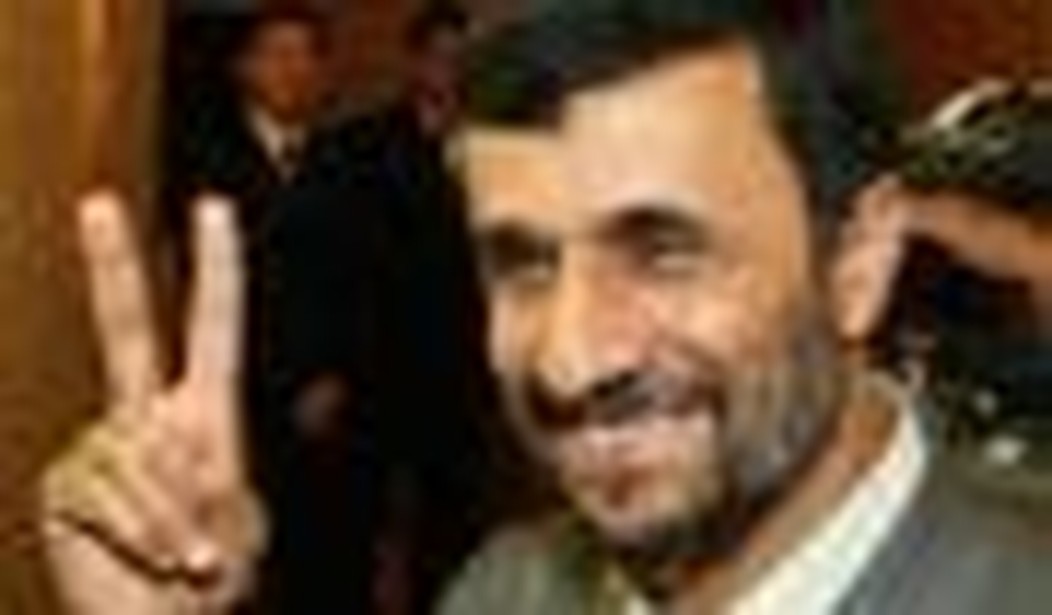Have you noticed how Iran has dropped off the news cycle and the brave protesters in that hideous dictatorship have disappeared into a netherworld we cannot see? One shudders at the fate of the many Iranian champions of democracy who, in the past two weeks, have been dragged off to an unspeakable fate. We stopped knowing about the new Iranian revolution because the world decided to fixate on the death of an imperfect man who, in my estimation, is of little importance in the great scheme of things. Except for those of us keeping in constant touch with Iranian Twitterers and Facebook pals, it is hard to find some real news about what many of us thought would be the stunning ouster of the ayatollahs. After all, in 1979 these ninth-century imams told their people to go forth and multiply and now, thirty years later, the babies who became the millions of young people are revolting against those very same mullahs.
At the recent D-Day commemorations in Portsmouth, I was shocked by the mirth of the young cadets on duty and their hilarity when a visitor asked them if they had been to visit Auschwitz. If our youth today have no political perspective and feel the sum total of life experience should be — may he rest in peace — Jackomania, democracy is doomed to a precarious future. Conversely, Twitter and Facebook were introducing the young of the world to a staggering moment in Persian history as June 21, the longest day, passed by. The aforementioned youth of Iran are leading the new revolution and all the media can do is obsess on Michael Jackson.
Yes, some say to me that the spectacular nature of the Jackson demise and the accompanying assemblage of stars, rabbis, preachers, civil rights leaders, psychologists, and spoon-benders is a slap in the face of the medieval Islamic nations that would have long ago slain Michael Jackson. Yes, the hoopla is part of the dynamism of a free society. But I find it unsettling that the media, who can at times change the course of history by concentrating on the right stuff, have been accomplices to hysteria. Ahmadinejad, in my view, is laughing his head off at his terrific luck; he has very likely gleefully removed his bulletproof vest with zest as the world abandons what could have been the people’s revolution and the transformation of the region.
Even the BBC suspended normal broadcasting after news of Jackson’s death was released. Since then the international networks have been fixated on this story and its many sordid permutations. The Jewish Chronicle and Evening Standard have been focusing on the fact that Debbie Rowe, his ex-wife, is Jewish and therefore so are the kids. We see Ms. Rowe swearing at the media and ordering them not to touch her, telling them she will kick their butts. Am I the only citizen of the world who finds it pathetic that the media here in Great Britain and the rest of the globe are spending endless hours on the story of this psychotic, confused man who had no real identity? My colleague at the Daily Telegraph, James Delingpole, commented: “the man was a freak; his squeaky voice maddening; his lyrics lame; his music abysmal; and I’d rather be torn apart by werewolves than have to listen to Thriller or Bad.”
So, if anyone is interested in what should have been the seminal moment in Middle Eastern history, I would like to share with readers some events and people in my lifetime that have shaped my views of the world. (Michael Jackson most definitely did not.)
In 1953 the young Jordanian King Hussein, having witnessed the assassination of his grandfather for attempting peace with the Jewish state, had ascended the throne. In 1953 Yitzhak Rabin was graduating from the British army staff college; forty years later King Hussein would make peace with him on television to millions of viewers around the globe. I will never forget seeing Rabin shaking hands with Yasser Arafat on the White House lawn; nor will I forget my year making a film in tragic Israel after the Rabin assassination.
But another event occurred in 1953, the year of my birth, that makes the events of June 2009 all the more notable: on August 19, 1953, Iranian General Mohammad Zahedi was instrumental in overthrowing Prime Minister Mossadegh. Three-hundred people died in what was seen as a mission by Britain and the CIA to overthrow the government. Mossadegh had sought to nationalize the Anglo-Persian Oil Company; some feel the seeds of turmoil that culminated in the 1979 Islamic revolution and overthrow of the shah were sown in 1953. Woe betide any commentator to pontificate on the complexities of recent Persian history, but the timeline of my own life has helped me understand the passions of the exiles I meet in my section of central London.
As the monumental events unfold before our eyes in Iran, one must hope that the enlightened youth of that beleaguered nation are able to bring it into a new era and lead the world and the region to a freedom that has eluded humanity for far, far too long. If the world’s media are stuck in Neverland, so be it. But one must hope the momentum of change in the great and ancient land of Persia, in Abraham Lincoln’s words, “will not perish from the earth,” that Jackomania will soon evaporate, and that the world’s media will renew their duty to report the most important revolution of a generation.









Join the conversation as a VIP Member